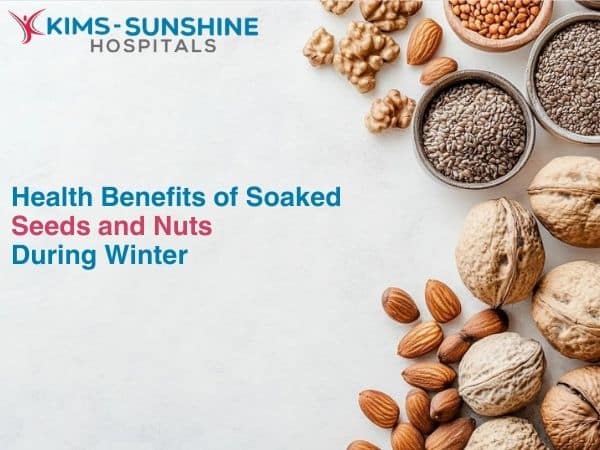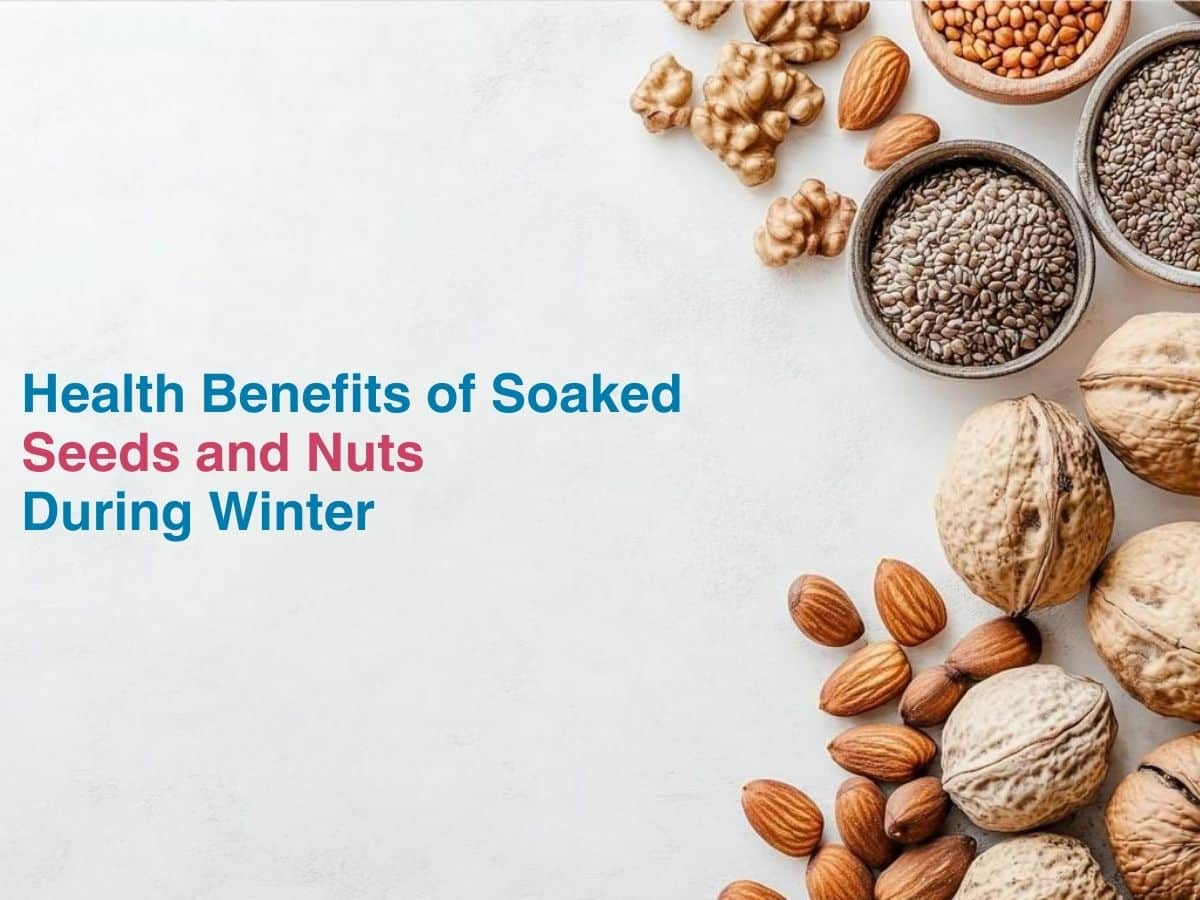
Health Benefits of Soaked Seeds and Nuts During Winter

Winters mean long nights, more cosy blanket time and eating food that we would find comforting in general. After all, eating your favourite food can even help improve your mood right? But how often are those very foods nutritious? We may not go grocery shopping and get fresh produce, so we may compensate with other options. Let us look at how you can increase the nutritional value of your meals this winter, with the addition of seeds and nuts.
Why Soak Seeds: Health Benefits During Winter-
The premise behind soaking seeds is very simple yet super elegant- seeds are hard generally and have a tough exterior which means you will not be able to get the nutrients from them unless the coating is either lost or taken off. They become that much more easier to consume, plus who can deny the lush creaminess when you run them through the mixie while adding them to smoothies or make nutritious, home-made, no-filler dairy-free milk? Apart from their greater edibility, they are rich in mono-unsaturated fats (MUFA) and polyunsaturated fats (PUFA), some fibre and a good deal of protein. The body generates heat by a process of thermogenesis, when breaking these components down. So, they help you stay warm. Let us look at different seeds and nuts that you should include in your diet, in various forms.
- Almonds or badam are very well loved for their crunchiness and they are super healthy snacks. They contain good amounts of Vitamin B2, E, good fats, protein and are great for your immunity too. But with almonds, we hope you don’t discard the peels after soaking, because they contain way more antioxidants than the nut itself.
- Pistachios or pista are light green coloured nuts that are normally eaten as a salty snack. We suggest you forego the seasoning and instead eat it plain, so your skin gets some much needed love this winter. They contain large amounts of vitamins A, B, C, E, K, folate along with loads of minerals like magnesium, phosphorus, copper, manganese and potassium. They also are rich in antioxidants and fibre, while having protein in them.
- Walnuts need a nutcracker but that is ok. You can use the tough shell for face packs as they are great exfoliators. Walnuts are very rich in omega-3 fatty acids, antioxidants, Vitamin B complex and have micronutrients like zinc, chromium, iron and copper, along with potassium ions in them. They are hence good for the vascular system.
- Cashews taste great when you eat them as kaju katli, but why do you need so much sugar when the nuts themselves are storehouses of goodness? Cashews have lots of protein in them, along with fibre, healthy fats, minerals like zinc, copper phosphorus and magnesium, along with iron.
- Sesame seeds are the best source of calcium ever- even better than dairy. They are also super rich in Vitamin B1 and E, protein, fibre, stearic and palmitic acids etc. They also have trace amounts of minerals in them. You can also use sesame oil for added flavour and nutritional value in your food.
- Chia seeds are rich in mucilage, so they are high in fibre content. They have many heart friendly properties- like antioxidants, omega-3 fatty acids, amino acids and also actively help in managing blood glucose levels through the day.
- Pumpkin seeds are very good for your body too. They have minerals and MUFA/PUFA, along with Vitamins A, K and E. They are rich in iron, zinc and magnesium. Let’s not forget the fibre content in them either.
- Sunflower seeds are adored by hamsters but you should eat them often as well. They contain Vitamins B, E, selenium, oleic and linoleic acids, along with minerals and antioxidants.
Soaking Seeds For Enhanced Nutrient Absorption-
Apart from making them much softer and easier to eat, soaking helps the nutrients become more bioavailable. This is due to the reduction in anti-nutrient molecules like phytic acid, tannins or polyphenols which may cause bloating, indigestion and also reduce the overall nutritional value of the foods themselves.
Conclusion
Soaked seeds and nuts are good for your immunity. They also help keep you warm and toasty and full when you eat them as a snack. They may be tiny but they are literal storehouses of lots of vitamins, protein, fats, minerals and other compounds which are antioxidative and anti-inflammatory in nature. Take fenugreek seeds for instance. Apart from imparting a yummy umami flavour to your dosas, idlis and curries, they are rich in nutrients too. So, try them anyway you want, but rest assured that you are getting all of their goodness.






